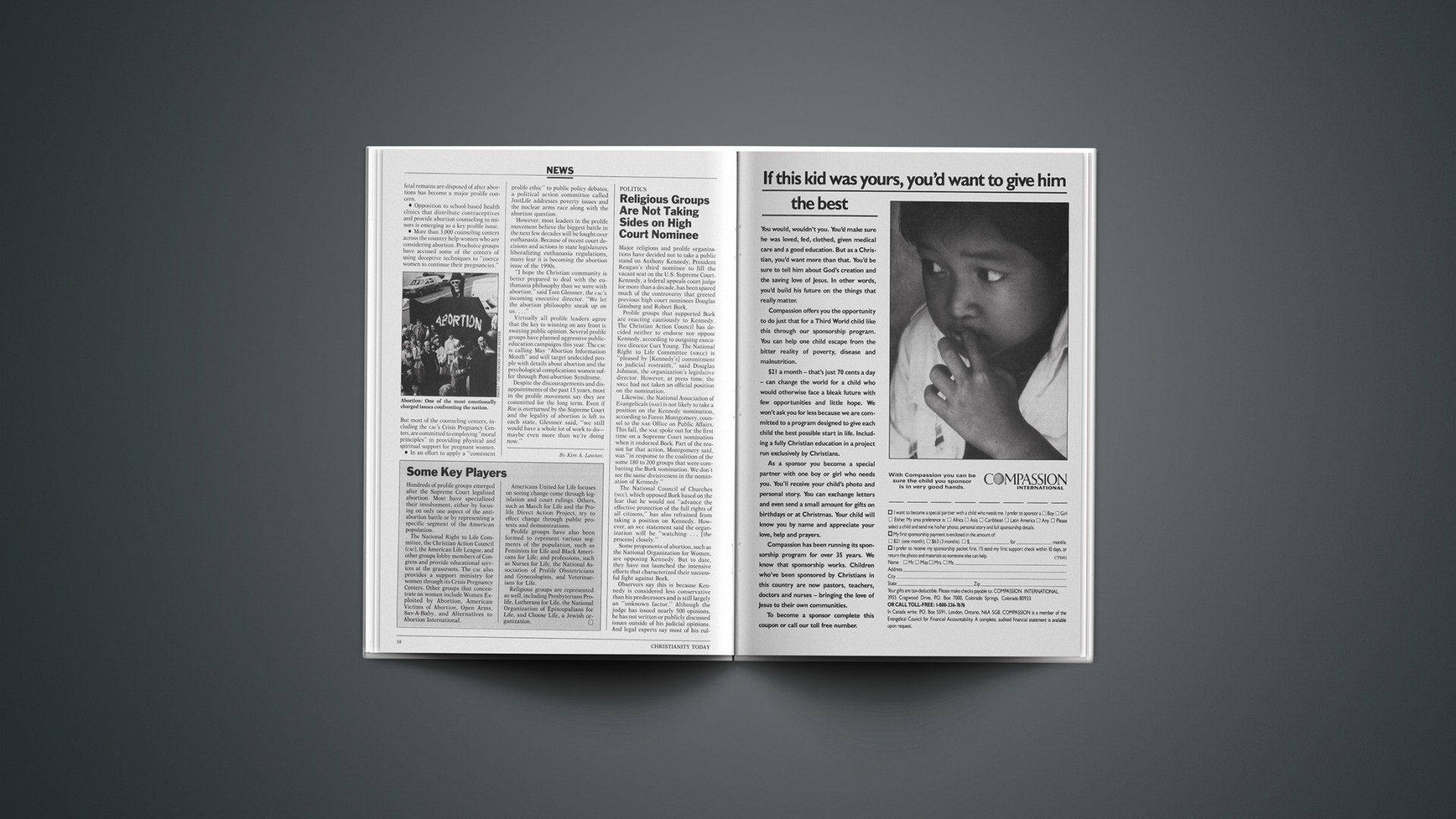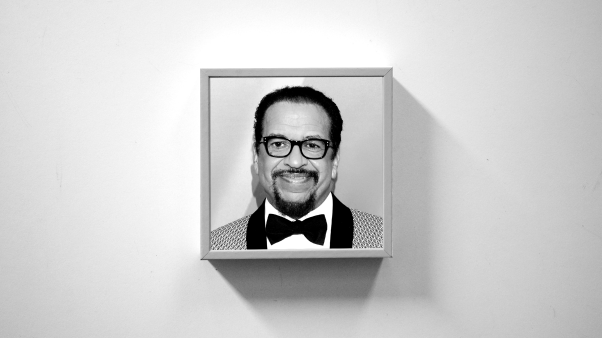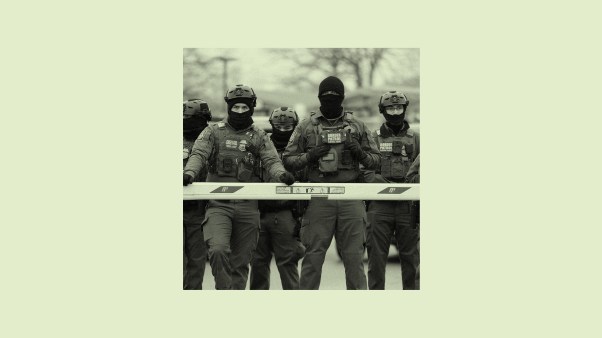Major religious and prolife organizations have decided not to take a public stand on Anthony Kennedy, President Reagan’s third nominee to fill the vacant seat on the U.S. Supreme Court. Kennedy, a federal appeals court judge for more than a decade, has been spared much of the controversy that greeted previous high court nominees Douglas Ginsburg and Robert Bork.
Prolife groups that supported Bork are reacting cautiously to Kennedy. The Christian Action Council has decided neither to endorse nor oppose Kennedy, according to outgoing executive director Curt Young. The National Right to Life Committee (NRLC) is “pleased by [Kennedy’s] commitment to judicial restraint,” said Douglas Johnson, the organization’s legislative director. However, at press time, the NRLC had not taken an official position on the nomination.
Likewise, the National Association of Evangelicals (NAE) is not likely to take a position on the Kennedy nomination, according to Forest Montgomery, counsel to the NAE Office on Public Affairs. This fall, the NAE spoke out for the first time on a Supreme Court nomination when it endorsed Bork. Part of the reason for that action, Montgomery said, was “in response to the coalition of the some 180 to 200 groups that were combatting the Bork nomination. We don’t see the same divisiveness in the nomination of Kennedy.”
The National Council of Churches (NCC), which opposed Bork based on the fear that he would not “advance the effective protection of the full rights of all citizens,” has also refrained from taking a position on Kennedy. However, an NCC statement said the organization will be “watching … [the process] closely.”
Some proponents of abortion, such as the National Organization for Women, are opposing Kennedy. But to date, they have not launched the intensive efforts that characterized their successful fight against Bork.
Observers say this is because Kennedy is considered less conservative than his predecessors and is still largely an “unknown factor.” Although the judge has issued nearly 500 opinions, he has not written or publicly discussed issues outside of his judicial opinions. And legal experts say most of his rulings were narrowly confined to the cases under consideration, rather than ones that set a broader precedent.
“I think he’s been grooming for a Supreme Court appointment for many years,” one Court observer told Christianity Today. “He’s very political in his background … and has been playing the game of keeping his own values close to his vest and rendering very narrow judgments in moderate tones. The question is, what are we going to find when he’s no longer in the position of playing … judicial politics and begins to write [opinions] more forthrightly?”
Other Court Action
Meanwhile, the eight-member Supreme Court is working through its fall judicial agenda. Last month, the justices refused on procedural grounds to decide the constitutionality of a New Jersey law that required schools to have a daily moment of silence for “quiet and private contemplation and introspection.”
The Court’s action, which did not set a national precedent, left intact a lower-court ruling that held the law unconstitutional. In 1985, a federal appellate court said the New Jersey law violated the separation of church and state by facilitating prayer, even though the statute does not mention prayer.
In 1985, the Court struck down an Alabama moment-of-silence law that, unlike the New Jersey statute, specifically mentioned “meditation or voluntary prayer.” About 25 states have moment-of-silence laws on the books.
In another case, the Court heard oral arguments in Jerry Falwell’s lawsuit against Hustler magazine for a parody alleging that he had a drunken, incestuous affair with his mother. Falwell’s attorney, calling the parody “repulsive and loathsome,” argued that it is not protected by the First Amendment. Hustler’s attorney said the parody was an expression of constitutionally protected free speech and urged the Court not to allow the case to diminish the press’s First Amendment rights.
In a third case, the high court announced it will consider the extent to which churches can engage in political activities while still maintaining their tax-exempt status. The Roman Catholic Church’s tax-exempt status was challenged by an organization known as Abortion Rights Mobilization, which has argued that the church violated federal law by attempting to influence public policy on abortion.
And in a decision that underscores the importance of the vacant Supreme Court seat, the justices deadlocked four-to-four over an Illinois law regulating a minor’s access to abortion. The law would have required unmarried women under 18 to inform both parents and wait 24 hours before getting an abortion—or obtain a judge’s permission to bypass those requirements.
The tie vote, which sets no national precedent, affirms a lower court decision that struck down the 24-hour waiting period and said the judicial-bypass provision could not be considered until the Illinois Supreme Court issued rules concerning how the provision would be carried out.










